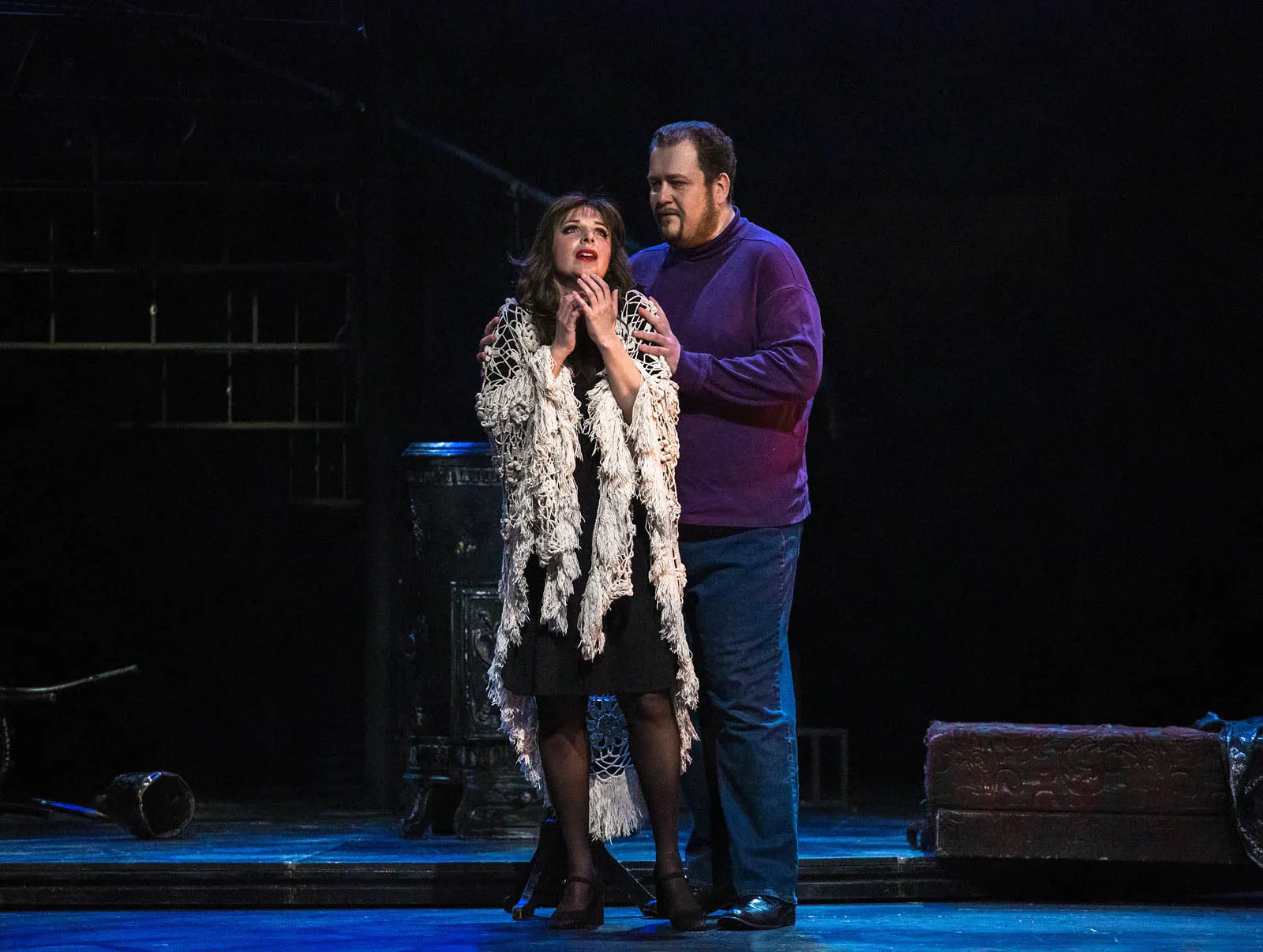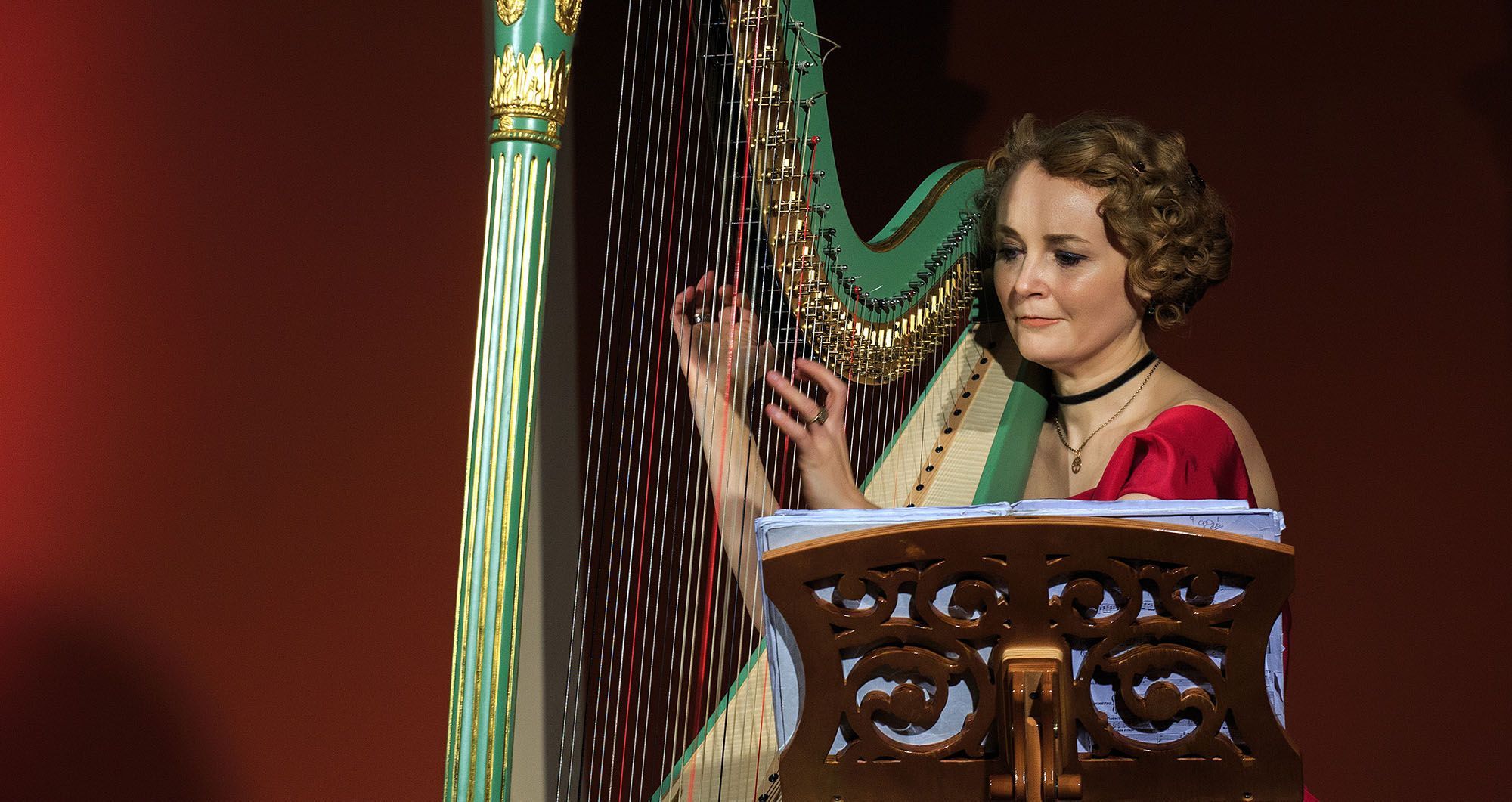Break 15:00–16:00
Elektra
This work began the collaboration of R. Strauss and dramatist H. von Hofmannsthal.
22 May,
Wednesday,
19:00





















“The St. Petersburg Opera is not just a theatre where I decide some of my directorial ambitions, but above all, it is a school for artists who master many styles. We sing Verdi and Puccini, Tchaikovsky and Dargomyzhsky, Mozart and Leoncavallo, Butsko and Britten...
But! We have not had anything like Elektra in more than 30 years of our existence ... Therefore, there is a desire to plunge into this extreme situation, into this expressionistic music.
We have not yet tasted expressionism in music. Although no, there was one experience... At one time we played the opera The Love and Death of Cornet Christopher Rilke by Siegfried Matthus, for which, by the way, we received one of our “Golden Masks”. There were also elements of German Expressionism, but that was a very long time ago, since then more than one generation of artists has changed in the theatre...
Today, I am sure, the time has come for the music of Richard Strauss. The heartbreaking theme of the killing of parents by children – isn't that all around us? The newspapers are bleeding with such news… The collapse of family relations, when a son can raise his hand against his mother, a daughter can raise her hand against her father... All these stories resonated very strongly in my heart. I felt that they were all very in tune with Elektra. Therefore, the performance will be in tune with our time,” Yuri Alexandrov reflects.
Palace of Agamemnon. The maids at work discuss the latest news. Queen Klytaemnestra, together with her lover Aegisth, killed her husband – King Agamemnon, and doomed her son Orest to exile. Her two daughters are subjected to eternal humiliation, but especially the proud Elektra, turned into an evil, unsociable fury. The maids mock her, but one of them still tries to protect the princess. A fierce argument turns into a fight...
The maid who interceded for Elektra frees the princess from the shackles. Elektra, on the other hand, mourns his father every day, recalling the bloody murder scene with painful details. She patiently endures the cruel treatment of her mother and stepfather, the ridicule and rudeness of the maids. She is forced to live in disgusting mud with the dogs. The girl has almost lost her human appearance and is waiting for only one thing - the return of her beloved brother Orest, anticipating a merciless revenge. A delightful picture appears in her mind’s eye – hated killers choking on their own blood...
Chrysothemis appears. Elektra is disdainful of her sister. Gentle Chrysothemis resigned herself to her humiliating role in the palace. Pleasing her mother and Aegisth, she lives incomparably better than Elektra. Dreaming of marriage and motherhood, she hopes for simple family happiness. Chrysothemis urges Elektra not to anger her mother, in vain believing that her sister could be frightened by imprisonment and further torture. Elektra does not intend to give up her goal, she kept the ax that killed her father... The argument of the sisters is interrupted by the stomp. Queen Klytaemnestra approaches with her retinue.
Klytaemnestra revels in power, but a troubled conscience has robbed her of sleep. She tries to forget herself with the help of wine, but wine does not bring relief either ... Maybe a sacrifice to the gods will help to get rid of torment? In an unexpected outburst, Klytaemnestra is ready to recall her maternal feelings for Elektra. Perhaps her daughter will advise her on how to get rid of the nightmares. Hypocritically sympathizing with the mother, Elektra predicts a terrible fate for her: she herself will become a victim of retribution and die at the hands of her own son...
To the discouraged Klytaemnestra, the maids whisper some good news ... The queen triumphs and leaves!
Elektra’s loneliness is disturbed by the cry of Chrysothemis. She talks about two strangers who brought undeniable evidence of their brother’s death. Coming out of his daze, Elektra makes a decision. She demands from her sister to help her commit matricide. Horrified, Chrysothemis refuses. But Elektra does not intend to give up, because revenge is the only goal of her life. Suddenly, a stranger appears in a strange outfit, hiding his face. Taking Elektra for a servant, he asks her about life in the palace, posing as a friend of Orest. Elektra chases the stranger with contempt. Her grief for Orest is immeasurable. Having hardly recognized the royal daughter in this girl, the newcomer confesses that he is Orest, and the news of his death is a trick in order to carry out the plan of revenge unrecognized. Human feelings awaken in Elektra again, her petrified heart opens up to hope, tenderness and even love...
At this moment, Chrysothemis dream comes true: she can become a mother. Her lover turns out to be a friend of Orest. He urges Orest to hurry. Orest goes to his mother’s chambers and brutally kills her ... The heartbreaking cry of Klytaemnestra is heard by everyone. But it is too early for Elektra to celebrate the victory, she is waiting for the second victim - Aegisth. She easily lures him to death. It is very easy to be nice, knowing what has been prepared for the scoundrel ... The merciless ax – the weapon with which Agamemnon was killed – falls repeatedly on the head of Aegisth...
Elektra triumphs: what she dreamed of for so long has come true... Her vow to her father is fulfilled. But can she live with blood on her hands? After all, cruelty gives rise to new cruelty. Blood intoxicated Chrysothemis too. She is ready to take the place of her mother, forgetting about her dreams of happiness.
At this time, Elektra’s glee and ecstasy turn into madness, around her she sees only death and horror. Her consciousness creates terrible pictures. Her passion turns against herself...
Orest ascends to the throne, overthrowing Chrysothemis. Elektra dies, tormented by visions.

Номинация «Лучшая мужская роль в оперном театре» (Геворг Григорян за роль Ореста), сезон 2020/2021

Номинация «Лучший дирижер в музыкальном театре» (Максим Вальков), сезон 2021/2022

Номинация «Лучшая исполнительница женской роли в опере» (Наталья Воробьева за роль Клитемнестры), сезон 2021/2022

Номинация «За выдающийся вклад в развитие музыкального театра в России» (Юрий Александров), сезон 2021/2022


























